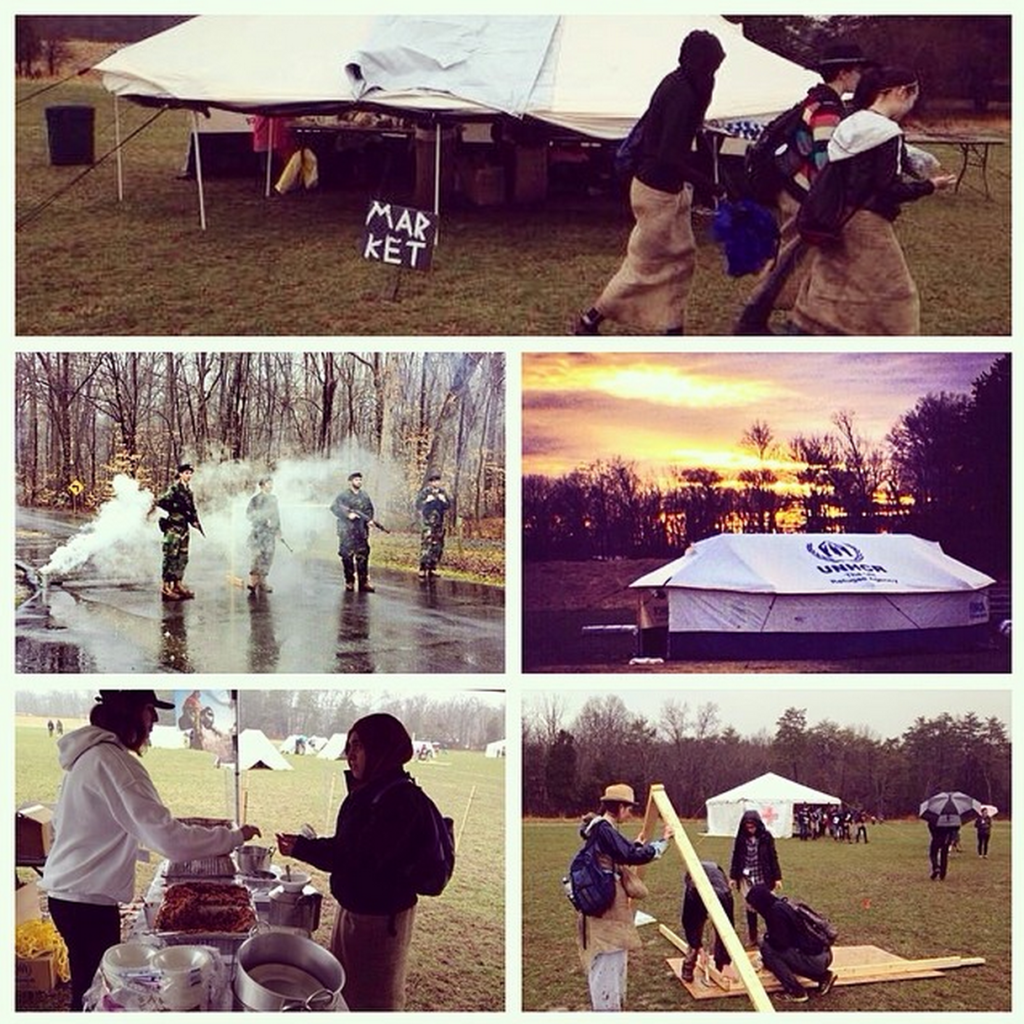This past weekend, over 500 students participated in a simulation that allowed them to have a taste of what life is like for millions of refugees worldwide. For six hours, they dealt with rebel troops interrogating them and confiscating possessions, building makeshift tents, and looking for medical and humanitarian aid from agencies in the area like the Red Cross and UNHCR.
Although 6 hours pales in comparison to the extended time that refugees are displaced from their homes in real life, the goal of the simulation was to give these youth volunteers a chance to experience what it feels like to have their agency taken away and to be forced into a situation over which they have very little control.
Did you know?
- In 2012, the overall number of forcibly displaced people worldwide was 45.2 million.
- There were 15.4 million refugees.
- 28.8 million internally displaced people (IDPs).
- Developing countries hosted over four fifths (80%) of the world’s refugees, compared to 70% ten years ago.
- In 2013, 46% of refugees were under 18 years old. This was in line with 2012 but higher than a few years ago. Refugee women and girls accounted for 48% of the refugee population.
The above information is from UNHCR. For more facts, click here.
Often, the hardest thing to know about global humanitarian issues is what you can do about it. As the students and participants in the Global Refugee Simulation & Conference learned, you can go very far by simply engaging those around you in conversation.
@vrivasfl @GRSC2014 Reciprocity huge incentive. Treat people as you would like to be treated. Important for POWs & protection of civilians
— Eric Sigmund (@RulesofWar) March 30, 2014
Make it a habit to ASK QUESTIONS, STAY INFORMED, and SHARE what you know.
All of these activities have an impact on how people connected to you perceive these issues and will demonstrate that these are all topics that deserve the attention of the community overall. Governments, prominent organizations, and other collectives all look in part to the issues that receive the most attention and time in public conversations to determine where they spend their money, time, and effort.
How do I get started?
We’re so glad you’re interested! There are a lot of great resources and people to connect with. Check out the links below and connect with the Red Cross, UNHCR, and other partners on social media as well.
On Twitter:
- @GRSC
- @RedCross
- @ICRC
- @Refugees (UNHCR)
- Search #refugee
On Facebook:
Other Resources:

